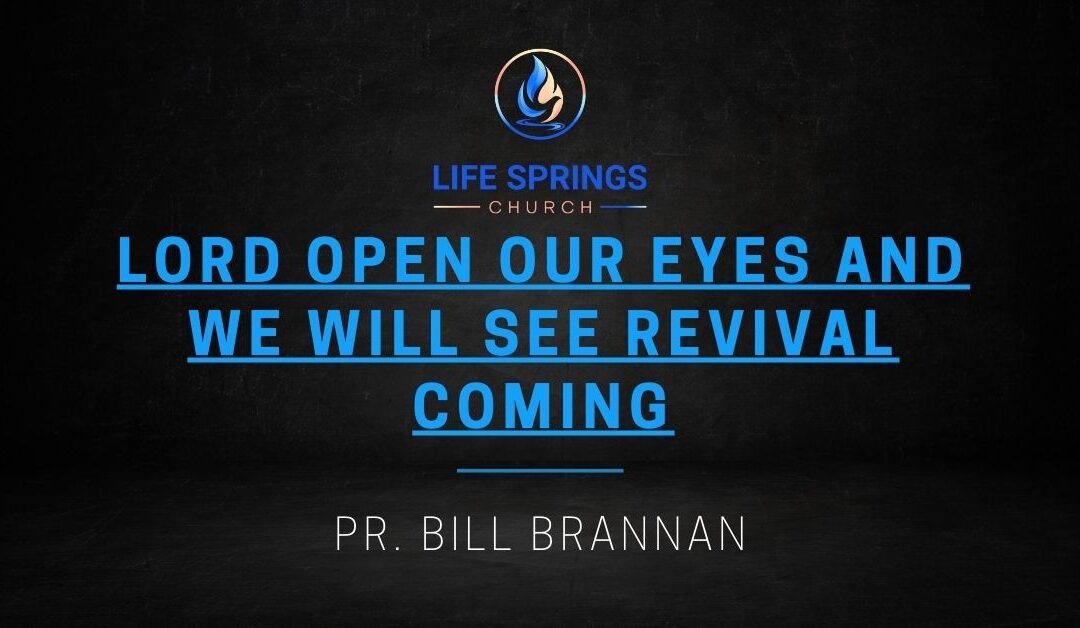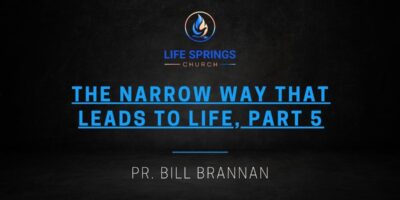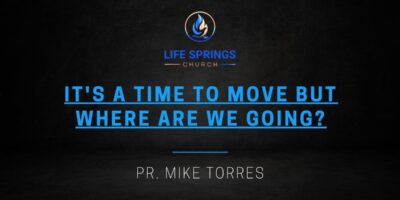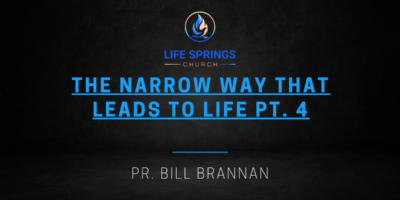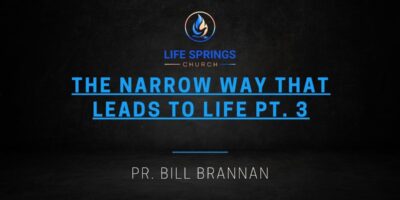Awakening the Church: A Call for Revival

In a world where church scandals have become alarmingly common, Pastor Bill Brannan’s sermon ‘Open Our Eyes, Lord, and We Will See Revival Coming’ serves as a wake-up call. He emphasizes the importance of personal responsibility, structural reform, and the empowerment of believers to catalyze a grassroots revival that can transform both the church and society at large.
The Current State of the Church
The landscape of the church today presents a complex picture. While many congregations flourish, others are plagued by scandals and disillusionment. This dichotomy raises questions about the underlying issues affecting the body of Christ.
Many believers are left questioning their faith due to the actions of a few. The perception of the church has suffered, and the trust once held by congregants is wavering. It’s crucial to recognize that these instances, while damaging, represent a minority rather than the majority of the church.

Photo by Sixteen Miles Out on Unsplash
Understanding the Minority
It’s essential to differentiate between the minority causing turmoil and the vast majority of believers who uphold the values of faith. The overwhelming number of Christians live out their beliefs authentically and strive to embody Christ’s teachings.
Small and medium-sized churches often demonstrate a more profound impact than mega-churches. They foster genuine community and connection, leading to more effective evangelism. This grassroots approach is vital for the future of the church.

Photo by Priscilla Du Preez 🇨🇦 on Unsplash
God’s Judgment or Wake-Up Call?
As we observe the turmoil within the church, one must ponder whether this is a sign of God’s judgment or merely a wake-up call. Many believe that God is attempting to grab our attention, urging us to reevaluate our structures and values.
The scandals serve as a reminder of the need for accountability and integrity within church leadership. However, it’s essential to approach this with a mindset focused on healing and transformation rather than condemnation.

Photo by Zac Durant on Unsplash
Divine Design vs. Structural Problems
The church must confront structural issues that hinder growth and engagement. When the church operates contrary to Divine Design, it struggles to flourish. Recognizing these misalignments is the first step towards revitalization.
Divine Design emphasizes community, empowerment, and personal responsibility. By realigning our structures with these principles, we can unlock transformational potential within the church.

Photo by Edwin Andrade on Unsplash
Empowerment of Believers
Empowering believers is a cornerstone of a thriving church. The five-fold ministry exists to equip the saints, enabling them to contribute meaningfully to the body of Christ. When believers are active participants, the church becomes a dynamic force in society.
Each member has unique gifts, and harnessing these can lead to a more vibrant faith community. Leadership should focus on fostering an environment where all believers feel valued and capable of contributing.

Photo by Debby Hudson on Unsplash
The Role of Authority in the Church
The concept of authority within the church requires reevaluation. Traditional hierarchies can stifle creativity and initiative among believers. A shift towards a model of servant leadership can foster a more inclusive and empowering environment.
Church leaders should aim to inspire and uplift rather than dominate. This paradigm shift will cultivate a culture of mutual respect and collaboration, enabling the church to thrive.

Photo by Sincerely Media on Unsplash
Redefining Holiness and Leadership
Holiness should not be perceived as an unattainable standard held by a select few. Instead, it should be viewed as a shared journey among all believers. Redefining holiness in this way can break down barriers and foster authentic relationships within the church.
Leadership should reflect the values of humility, service, and love. When leaders embody these traits, they set a powerful example for the congregation, encouraging a culture of accountability and growth.

Photo by Vonecia Carswell on Unsplash
Scriptural Foundations for Change
Scripture provides a robust foundation for the necessary changes within the church. Passages such as Mark 10:42-45 highlight the importance of servant leadership and the inversion of worldly power structures. These teachings can guide the church towards a more Christ-centered approach.
Embracing the principles found in scripture can lead to a revitalized faith community, where every member is empowered to live out their faith actively. This transformation is not only vital for the church but for the broader society as well.
Servant Leadership and Its Impact
Servant leadership shifts the focus from authority and control to service and empowerment. This model fosters an environment where leaders prioritize the needs of others, creating a culture of mutual respect and collaboration.
When leaders embody servant leadership, they inspire those around them to do the same. This ripple effect can lead to a more engaged congregation, one that actively participates in the mission of the church.

Photo by Helena Lopes on Unsplash
The Benefits of Servant Leadership
- Empowerment: Encourages individuals to use their gifts and talents for the greater good.
- Community Building: Fosters connections and relationships within the church.
- Increased Engagement: Motivates members to take part in ministries and outreach programs.
The False Vision of Authority
The traditional view of authority often leads to a hierarchical structure that stifles innovation and creativity. This approach can create an environment where fear and compliance take precedence over genuine connection and collaboration.
When authority is wielded as a tool for control, it can alienate members instead of drawing them closer. This false vision of authority undermines the very essence of what the church is meant to be—a community of believers united in love and purpose.

Photo by Brooke Cagle on Unsplash
Rethinking Authority
- From Control to Influence: Leaders should aim to influence rather than control.
- Encouraging Participation: Create spaces for everyone to voice their thoughts and ideas.
- Building Trust: Foster an atmosphere of trust where members feel safe to express themselves.
The Importance of Community and Connection
Community is at the heart of the church’s mission. Genuine relationships are essential for spiritual growth and support. When members are connected, they can provide encouragement and accountability to one another.
Building authentic community requires vulnerability and openness. As believers share their lives, they create a space where others feel safe to do the same, fostering deeper connections.

Photo by Cynthia Magana on Unsplash
Strategies for Building Community
- Small Groups: Encourage participation in small group settings for deeper relationships.
- Service Projects: Engage in community service as a way to bond and serve together.
- Open Communication: Create channels for open and honest dialogue among members.
The Power of Grassroots Movements
Grassroots movements are powerful because they emerge from the community rather than being imposed from above. This bottom-up approach encourages individuals to take ownership and responsibility for their actions and contributions.
When believers unite around a common purpose, they can create significant change, both within the church and in the broader community. These movements often inspire others to join, amplifying their impact.

Photo by Priscilla Du Preez 🇨🇦 on Unsplash
Examples of Grassroots Movements
- Local Outreach: Initiatives that address specific community needs.
- Prayer Groups: Organizing prayer meetings that encourage collective intercession.
- Support Networks: Establishing networks for sharing resources and encouragement among members.
Joy in Service and Community
True joy is found in serving others and being part of a community. When individuals focus on the well-being of others, they often find fulfillment that surpasses personal desires. This joy can be contagious, inspiring others to join in the mission of service.
Celebrating victories, no matter how small, reinforces the joy found in community. Recognizing contributions and achievements fosters an encouraging environment where everyone feels valued.

Photo by Kimson Doan on Unsplash
Encouraging a Culture of Joy
- Celebrate Milestones: Acknowledge personal and communal achievements regularly.
- Create Fun Events: Organize social gatherings that promote joy and connection.
- Share Testimonies: Encourage members to share their experiences of joy in service.
The Role of Accountability
Accountability is crucial for personal and communal growth. It involves holding one another to the values and standards set by the community. When accountability is rooted in love and support, it becomes a tool for encouragement rather than condemnation.
Effective accountability fosters a culture of honesty, where members feel safe to discuss struggles and seek help. This creates a stronger bond within the community and promotes growth in faith.
Building Accountability Structures
- Mentorship Programs: Pair experienced members with those seeking guidance.
- Regular Check-Ins: Schedule consistent meetings for accountability and support.
- Honest Communication: Foster an environment where sharing struggles is encouraged.
Transforming the Church through Personal Responsibility
Personal responsibility is the foundation of a thriving church community. Each member must recognize their role in contributing to the health and vitality of the church. This shift in mindset empowers individuals to take action and make a difference.
When members embrace personal responsibility, they become agents of change. They begin to see their actions as impactful, leading to a more engaged and active congregation.

Photo by Harold Wijnholds on Unsplash
Encouraging Personal Responsibility
- Education: Provide resources and training on personal responsibility.
- Involvement Opportunities: Create avenues for members to serve based on their passions.
- Celebrate Contributions: Acknowledge individual efforts in community-building activities.
A Vision for Revival
A vision for revival must encompass a holistic approach that includes servant leadership, community engagement, and grassroots movements. This vision is rooted in the belief that every member has a role to play in the revitalization of the church.
By fostering a culture of love, service, and accountability, the church can become a beacon of hope in a troubled world. This revival is not just about numbers; it’s about transforming lives and communities through the power of Christ.

Photo by Ian Schneider on Unsplash
Steps Toward Realizing the Vision
- Prayer and Worship: Commit to seeking God through prayer and collective worship.
- Community Engagement: Actively participate in local initiatives that promote human flourishing.
- Continuous Learning: Encourage members to grow in their faith and understanding of scripture.
Preaching Outline
Lord Open our Eyes and We will See Revival Coming
(Preaching Outline)
1) This week a friend told me about a church in Brighton, Michigan. – Is God judging the church?
- a)I was talking to another pastor about this – he hadn’t heard, was not even a bit surprised because moral failures among Christian leaders are common.
- i)We need to ask why this is happening!
- ii)Why should we care? – What it does in the church and in the world – dysfunctional family. (IMPACT ON REAL PEOPLE) (NOT MAJORITY BUT VISABLE MINORITY)
iii) What is the problem and the solution? – the first answer someone suggested is that it is a breakdown of accountability – I think that is trying to solve the problem in a manner that might be related to the very problem itself.
- iv)I believe it is a problem with the whole structure – Including but not limited to:
(1) When things are built in a manner contrary to divine design – revolutionary changes happen when they are put in order.
(2) One of the main issues in my mind is personal responsibility of believers. (Maturity)
(3) Another main issue is a false vision of authority and heavenly rule.
(4) Another seems to be a pagan man and/or woman of God idea.
- b)There are many scriptures we could discuss in this context, but I am only going to briefly explore 2:
- i)Mark 10:42–45 (NKJV) — 42 But Jesus called them to Himself and said to them, “You know that those who are considered rulers over the Gentiles lord it over them, and their great ones exercise authority over them. 43 Yet it shall not be so among you; but whoever desires to become great among you shall be your servant. 44 And whoever of you desires to be first shall be slave of all. 45 For even the Son of Man did not come to be served, but to serve, and to give His life a ransom for many.”
- ii)Matthew 23:27–28 (NKJV) — 27 “Woe to you, scribes and Pharisees, hypocrites! For you are like whitewashed tombs which indeed appear beautiful outwardly, but inside are full of dead men’s bones and all uncleanness. 28 Even so you also outwardly appear righteous to men, but inside you are full of hypocrisy and lawlessness.
2) Now when we talk about issues in the church or in the world, how does that make you feel? That is a very important question to think about.
- a)I want to share some scriptures to lay a foundation for a move of God I believe has begun.
- b)Luke 10:1–2 (NKJV) — 1 After these things the Lord appointed seventy others also, and sent them two by two before His face into every city and place where He Himself was about to go. 2 Then He said to them, “The harvest truly is great, but the laborers are few; therefore pray the Lord of the harvest to send out laborers into His harvest… Luke 10:8–9 (NKJV) — 8 Whatever city you enter, and they receive you, eat such things as are set before you. 9 And heal the sick there, and say to them, ‘The kingdom of God has come near to you.’
- c)Luke 10:17–20 (NKJV) — 17 Then the seventy returned with joy, saying, “Lord, even the demons are subject to us in Your name.” 18 And He said to them, “I saw Satan fall like lightning from heaven. 19 Behold, I give you the authority to trample on serpents and scorpions, and over all the power of the enemy, and nothing shall by any means hurt you. 20 Nevertheless do not rejoice in this, that the spirits are subject to you, but rather rejoice because your names are written in heaven.”
3) A Move of God for the Sake of the World – is judgment beginning with the house of God?
4) Dealing with the failure of the church in Brighton
- a)Why accountability doesn’t work, but what does work.
- b)Why it is a responsibility and maturity issue.
- c)The value of every member doing their part.
- d)I believe this is a great divine preparation for the greatest world transformation yet in history –
- i)Let the failure grieve us and take responsibility for it.
- ii)If the solution releases the latent power of the church hidden in believers, it will begin a worldwide liberation movement beyond anything we can imagine.
- e)Revivals and the Great awakening
- i)Low church attendance and still a world transforming impact by our founding generation. The end of State churches in the States caused church attendance to skyrocket to about 80%, and radically increased the quality.
- ii)Impact of a smaller church from today – ASKING THE RIGHT QUESTIONS
- f)IT MEANS TAKING RESPONSIBILITY RATHER THAN PLACING BLAME…from the fall of man to God taking responsibility by sending Jesus Christ!
- g)Philippians 2:3–4 (NKJV) — 3 Let nothing be done through selfish ambition or conceit, but in lowliness of mind let each esteem others better than himself. 4 Let each of you look out not only for his own interests, but also for the interests of others.
- h)REVIVAL VISION


